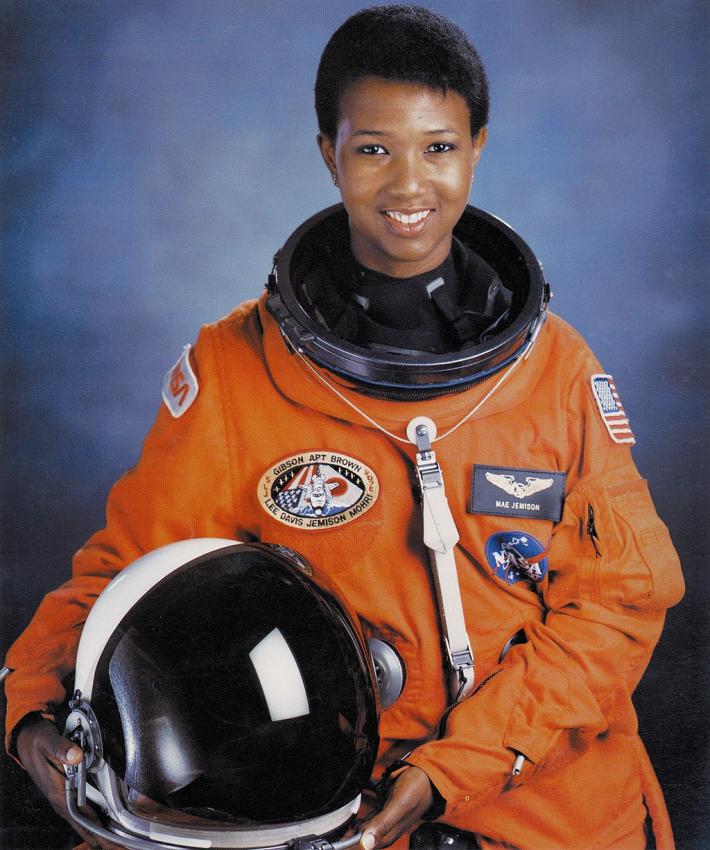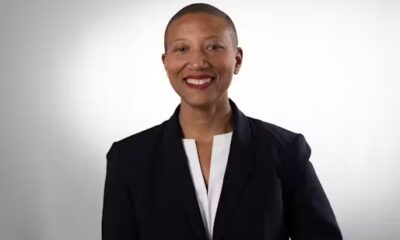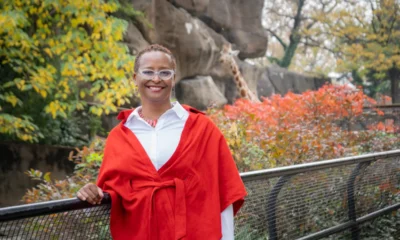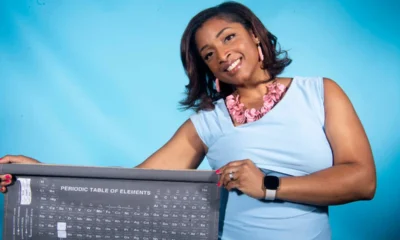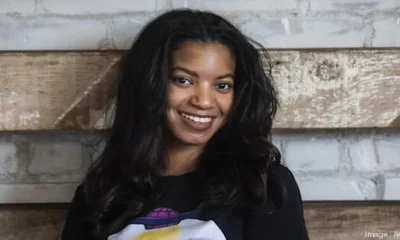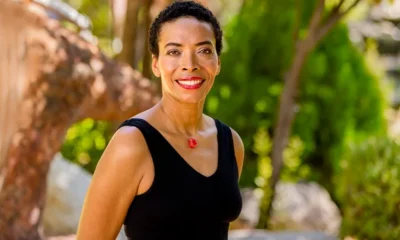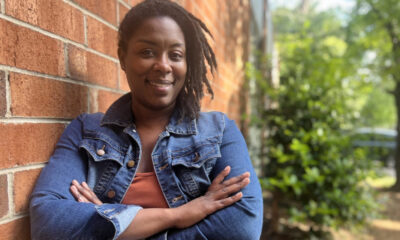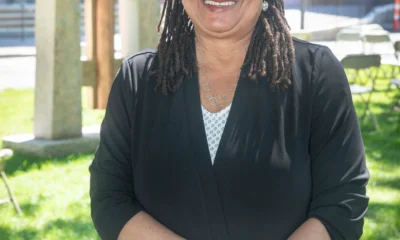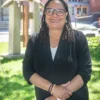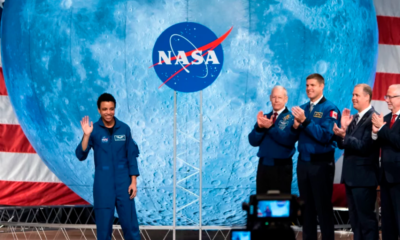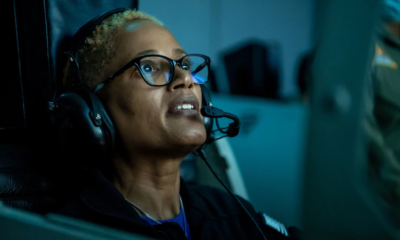Via www.designnews.com
We’re celebrating both Black History Month and Women’s History Month with a list of some of today’s most prominent black females in engineering.
Not enough is said of the contributions of women in engineering in general, and of black women in particular.
According to the National Science Foundation, black and African American women have seen their share of bachelor’s degrees earned in computer sciences, mathematics and statistics, and engineering decline in the period from 1996 to 2014. In relation to African-American women in particular, according to data collected by the National Society of Black Engineers (NSBE), only 26.3% of engineering bachelor’s degrees awarded to African Americans in 2011 went to women. At the same time however, STEM jobs in the United States are expected to increase by 10 percent by 2020, according to a white paper released by the NSBE, and some sectors are currently reporting nearly 600,000 unfilled engineering jobs. “In addition to exploring the challenges and barriers faced by African American women, we must also acknowledge and seek to better appreciate the valuable experiences and knowledge African American women bring to engineering,” the NSBE white paper NSBE says. “Highlighting their distinctive contributions and attributes would challenge implicit and explicit deficit orientation in which this demographic is often framed.”
To that end Design News is highlighting 10 black female engineers who have, and are still making, significant contributions to engineering. The women featured here cover a variety of fields from aerospace and automotive, to artificial intelligence and green energy.
-
Latanya Sweeney
Latanya Sweeney is a Professor of Government and Technology in Residence at Harvard University and the Director of the Data Privacy Lab in the Institute of Quantitative Social Science (IQSS) at Harvard. Her work focuses primarily on issues of data privacy and leveraging technology to address social and political issues.
From January to December 2014 she served as the chief technologist of the US Federal Trade Commission (FTC), where she advised the agency on emerging technologies and related policy issues. Her most well-known work is in the area of k-anonymity, a concept she introduced in 1998, which is a method for privatizing data that has been applied to systems such as electronic medical records in which is it important to keep sensitive data from being directly associated with any one individual.
Sweeney earned a PhD in computer science from the Massachusetts Institute of Technology (MIT), making her the first African American woman to earn a PhD in that field from MIT.
[image source: Parker Higgins (Own work) [CC BY 4.0 (http://creativecommons.org/licenses/by/4.0)], via Wikimedia Commons]

Not enough is said of the contributions of women in engineering in general, and of black women in particular.
According to the National Science Foundation, black and African American women have seen their share of bachelor’s degrees earned in computer sciences, mathematics and statistics, and engineering decline in the period from 1996 to 2014. In relation to African-American women in particular, according to data collected by the National Society of Black Engineers (NSBE), only 26.3% of engineering bachelor’s degrees awarded to African Americans in 2011 went to women. At the same time however, STEM jobs in the United States are expected to increase by 10 percent by 2020, according to a white paper released by the NSBE, and some sectors are currently reporting nearly 600,000 unfilled engineering jobs. “In addition to exploring the challenges and barriers faced by African American women, we must also acknowledge and seek to better appreciate the valuable experiences and knowledge African American women bring to engineering,” the NSBE white paper NSBE says. “Highlighting their distinctive contributions and attributes would challenge implicit and explicit deficit orientation in which this demographic is often framed.”
To that end Design News is highlighting 10 black female engineers who have, and are still making, significant contributions to engineering. The women featured here cover a variety of fields from aerospace and automotive, to artificial intelligence and green energy.

Donna Auguste
There were a lot of stepping stones on Apple’s road to the iPhone. One of the most well-known of these products, the Newton Personal Digital Assistant , owes its development to Donna Auguste, a former senior engineering manager at Apple.
Auguste holds various patents related to her work on the Newton. Prior to her tenure at Apple, she conducted research into artificial intelligence at Carnegie-Mellon University, where she earned a master’s degree in computer science. In 1996, she founded Freshwater Software, a company that provided software solutions for monitoring web-based applications.
Auguste retired in 2001 after selling Freshwater Software for $107 million and went on to found the Leave a Little Room Foundation, a non-profit organization that helps provide housing, electricity, and vaccinations to poor and underprivileged communities around the world.
She is currently a PhD candidate in the ATLAS Institute at the College of Engineering and Applied Sciences at the University of Colorado, where she is working on a project called DataTip, an interdisciplinary science learning environment.
Marian Croak
Currently the vice president of research and development for Access Strategy and Emerging Markets at Google, Marian Croak joined Bell Labs (later AT&T) in 1982 and spent more than 30 years as an engineer at AT&T, where she lead efforts to implement Internet Protocol (IP) technology into telephony and communications. She holds more than 130 patents related to voice-over IP technology.
In her current role at Google, Croak heads up projects to expand Internet technology and access to emerging markets and developing nations. One of these projects is Project Loon, an effort to extend high-speed Internet access to remote and rural regions via an array of balloons that will hover in the stratosphere. Croak attended Princeton University and the University of Southern California and holds a Ph.D. in Social Psychology and Quantitative Analysis.
Timnit Gebru
Timnit Gebru is a post doctorate researcher at Microsoft Research examining the ethical and moral implications of artificial intelligence.
A former PhD student in the Stanford Artificial Intelligence Laboratory, Gebru’s research deals primarily in computer vision applications. In 2017, she co-authored a paper, “Fine-Grained Car Detection for Visual Census Estimation,” in which she and a team of researchers were able to develop a machine learning algorithm that leveraged images of cars from Google Street View to predict census data such as income, per capita carbon emission, and crime rates. Gebru is also the founder of Black in AI, an initiative to develop awareness and increase the number of black people working in artificial …
Read More: 10 of the Most Important Black Woman Engineers



